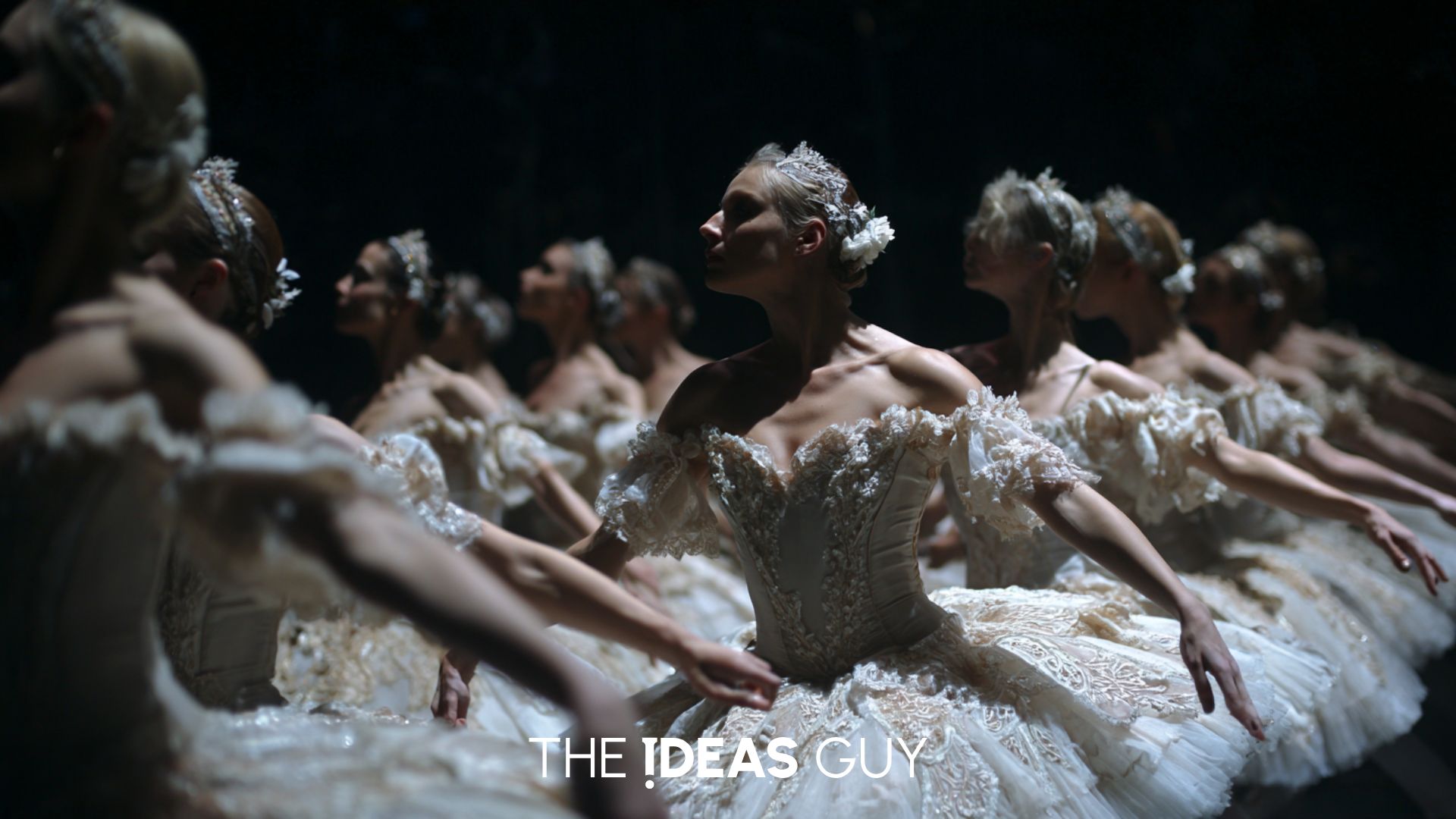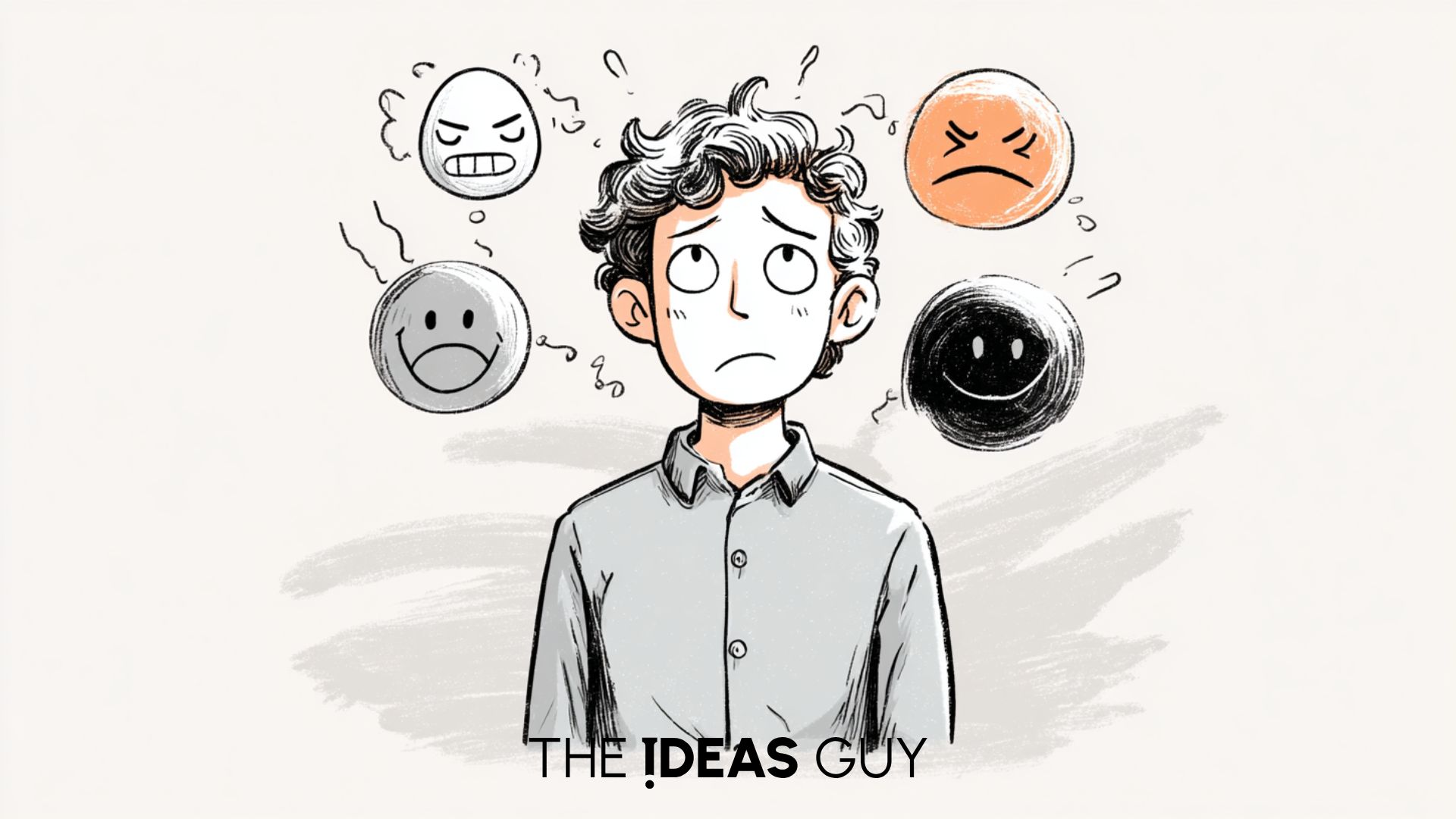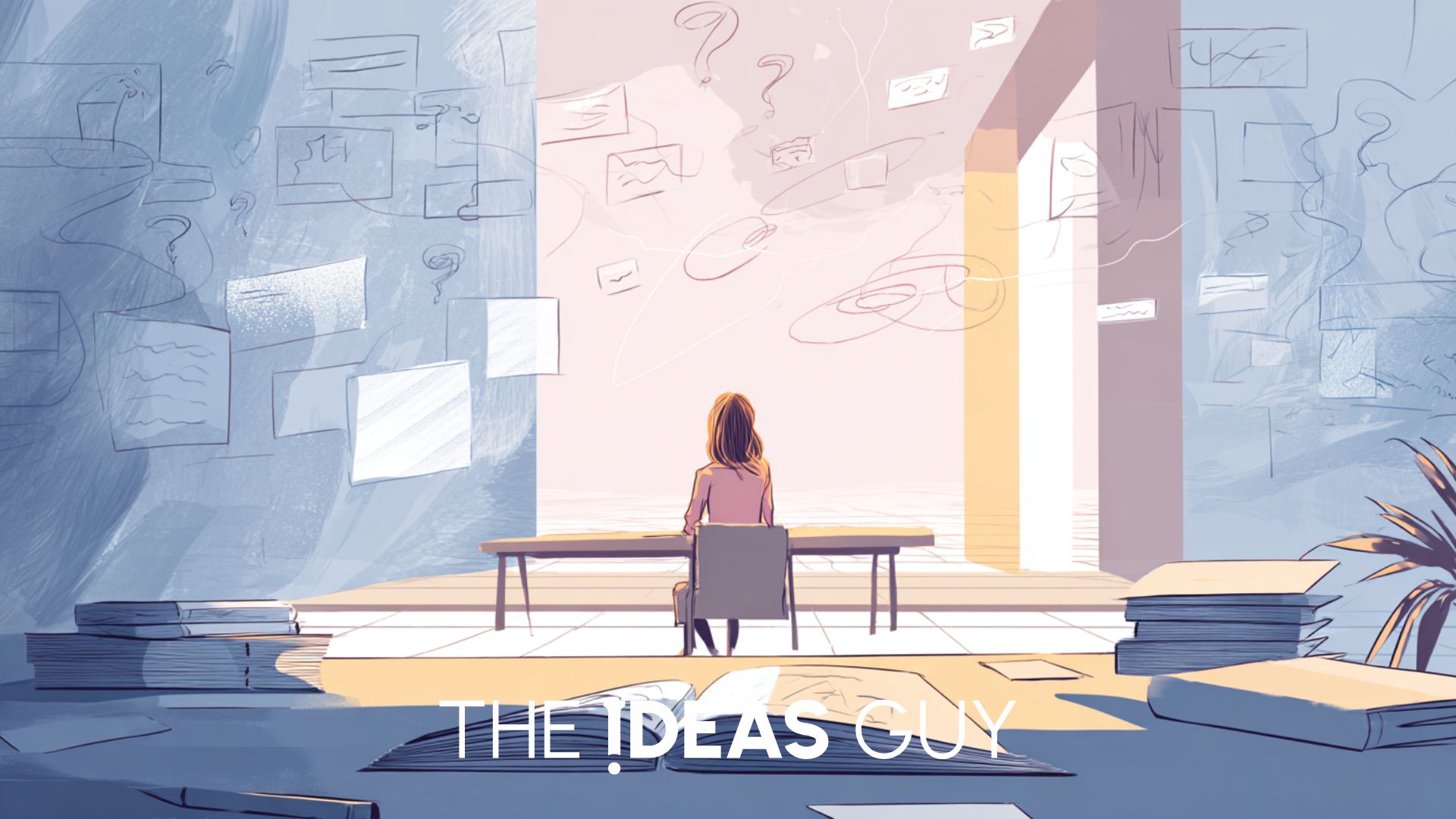Chapter 2: How Amanda learned that subtlety is the enemy of understanding
In the first part of this series, we established that ADHD isn't a free pass to be a knobhead. But even when both partners understand the accountability equation, there's still the daily challenge of actually communicating effectively when one brain processes information differently. This is where most ADHD relationship advice falls apart - it assumes that getting a diagnosis automatically translates into smooth communication.
The great social calendar incident perfectly illustrates why this assumption is wrong. In the space of a few text messages, I'd enthusiastically committed us to Sunday lunch at our friends' house (bringing both kids), invited Amanda's parents round for a barbecue the following weekend, and confirmed our attendance at an awards dinner where I'd know half the room and Amanda would know precisely nobody.
Amanda had been dropping increasingly obvious hints about our social overload for weeks. The weary comments about "another commitment added to the calendar." The pointed observations about how "nice it must be for couples who have quiet weekends at home." The strategic mentions of friends who "don't feel obligated to fill every spare moment with social events."
Meanwhile, my ADHD brain remained blissfully oblivious to this elaborate communication ballet. Every invitation felt like an exciting opportunity. Every social gathering seemed like a brilliant idea at that moment. Amanda's hints about wanting more downtime didn't register as requests - they sounded like casual observations about other people's lifestyles.

It wasn't until Amanda finally exploded - "I feel like our entire social life revolves around what you want to do, with people you want to see, and I'm just expected to go along with it all!" - that I realised we'd been having completely different conversations for weeks, months, probably, years.
That explosion marked the beginning of Amanda's communication revolution. She'd discovered something that most relationship guides never acknowledge: when one brain processes information differently, traditional communication strategies don't just fail - they actively create more problems. The gentle hints, the polite suggestions, the diplomatic approaches that work perfectly well in neurotypical relationships become exercises in frustration when one person's brain literally doesn't register subtlety.
This isn't another guide to communicating with your ADHD partner that treats neurodivergent brains like malfunctioning computers requiring special instructions. Instead, it's about Amanda's journey from confusion to clarity - how she learned to adapt her communication style without losing her authenticity, and why direct communication isn't harsh communication when done with genuine care.
The Hint-Dropping Disaster
British culture has elevated indirect communication to an art form. We're masters of the meaningful pause, the diplomatic suggestion, the polite implication that allows everyone to save face whilst still getting the message across. But, if I’m honest, it’s usually sprinkled with a dash of passive aggression, internal expletives and slagging the other person off to everyone except them.
The problem is that ADHD brains often miss the music entirely.
"I honestly thought you were being deliberately obtuse," Amanda tells me now. "How could anyone miss signals that obvious?" But obvious to whom? Amanda's hint about our overpacked social calendar - "It would be lovely to have a quiet weekend for once" - sailed past my ADHD brain like a radio signal on the wrong frequency.
The neuroscience behind this communication disconnect is fascinating. ADHD brains often struggle with what psychologists call “social pragmatics” - the ability to pick up on implied meanings, context clues, and emotional subtleties in conversation. We're brilliant at processing explicit information but can completely miss the subtext that neurotypical brains effortlessly decode.

Dr. Russell Barkley explains this as part of executive dysfunction - the same neurological challenges that make it difficult to plan and organise also affect our ability to read social situations and understand implied communication. A person with ADHD may have great difficulty reading social situations appropriately, understanding the perspective of others, and considering how their behaviour affects other people.
For Amanda, this was initially mystifying. In her world, if someone repeatedly mentioned being tired, wanting quiet time, or feeling overwhelmed by social commitments, the natural response would be to dial back the activities. But my ADHD brain didn't make these connections. Each hint existed in isolation, disconnected from any pattern or larger meaning.
The breakthrough came when Amanda realised she was essentially speaking a foreign language. Her hints weren't just being misunderstood - they weren't being recognised as communication at all. It was like trying to give directions through interpretive dance to someone who'd never seen dancing before.
"I had to learn that what felt like obvious communication to me was actually code," Amanda explains. "And you don't speak code. You speak plain English."
This realisation was liberating but also challenging. Amanda had to unlearn decades of indirect communication habits whilst I had to learn to recognise when her straightforward requests weren't attacks on my character.
Rejection Sensitivity and the Communication Minefield
Just as Amanda was learning to communicate more directly, she discovered another ADHD-related challenge that complicated everything: rejection sensitive dysphoria (RSD). This neurological quirk means that ADHD brains often interpret neutral or even positive communication as criticism, rejection, or attack.
The first time Amanda tried direct communication about our social calendar, I heard her reasonable request - "Can we check with each other before making social commitments?" - as a devastating criticism of my entire personality. My brain translated it to: "You're selfish, inconsiderate, and fundamentally flawed as a partner."
This wasn't rational, and it wasn't fair to Amanda. But it was real, and it created a new communication challenge. How do you speak directly to someone whose brain might interpret directness as warfare? Let me tell you this too: this is 100% how I react when ANY criticism happens. It is totally out of context.

"It felt like I couldn't win," Amanda remembers. "Hints didn't work because you didn't understand them. But direct communication triggered this massive emotional response that made you shut down completely."
The rejection sensitivity created what psychologist John Gottman would recognise as a "negative cycle" in our relationship. Amanda would try to communicate a need indirectly. I'd miss it entirely. She'd get frustrated and communicate more directly. I'd feel attacked and become defensive. She'd feel unheard and escalate. I'd withdraw emotionally. Round and round we went.
Breaking this cycle required Amanda to develop what she calls "emotional radar" - the ability to sense when my rejection sensitivity was likely to be triggered and adjust her approach accordingly. But this wasn't about tiptoeing around my feelings forever. It was about strategic communication that achieved her goals whilst minimising unnecessary emotional chaos.
"I learned that there's a difference between being careful and being a hostage," Amanda says. "I could acknowledge your rejection sensitivity without becoming its prisoner."
This involved understanding that RSD isn't logical or voluntary. When my brain interprets Amanda's request as rejection, that emotional response is neurologically real, even if it's not rationally justified. Amanda couldn't reason me out of feeling rejected, but she could learn to communicate in ways that reduced the likelihood of triggering this response.
The philosopher Maurice Merleau-Ponty wrote about “embodied cognition” which is the idea that our physical and emotional states fundamentally shape how we process information. For ADHD brains experiencing rejection sensitivity, this means that the same words can land completely differently depending on context, timing, and emotional state.
“Nothing determines me from outside, not because nothing acts upon me, but, on the contrary, because I am from the start outside myself and open to the world.” Maurice Merleau-Ponty
Amanda became a master of reading these conditions. She learned to distinguish between moments when I could handle direct feedback and times when my emotional regulation was already strained. She developed an instinct for when to push through a difficult conversation and when to table it for later.
This wasn't about managing my emotions - it was about strategic timing for maximum communication effectiveness.

What Normal Communication Advice Gets Wrong
Most relationship communication advice assumes that both partners process information similarly. The standard guidance - use "I statements," avoid "always" and "never," speak from your own experience - isn't necessarily wrong, but it's incomplete when applied to ADHD relationships.
Relationship experts typically suggest choosing a moment when both partners are calm and have time to talk when faced with those difficult conversations. But ADHD brains don't always cooperate with optimal timing. Sometimes the rejection sensitivity strikes during perfectly calm moments. Sometimes hyperfocus means that later becomes never.
Amanda discovered that waiting for perfect timing often meant important conversations never happened at all. Instead, she learned to create communication opportunities within the chaos of ADHD life.
"I stopped waiting for you to be in the perfect headspace," Amanda explains. "Instead, I learned to work with whatever headspace you were actually in."
This might mean having a serious conversation while I'm doing the washing up because the physical activity helps my brain focus. It might mean texting me important information because written communication gives me time to process without feeling pressured to respond immediately. It might mean scheduling specific times for relationship check-ins rather than hoping they'll happen naturally.
And the interesting thing here is that Amanda didn’t need to be the relationship expert or the proactive speaker. That’s my role - I always want to talk rather than keep things under wraps - but what we have learned to do is find ways to do this around emotional challenges.
The advice about using "I statements" also needed adaptation. While "I feel overwhelmed by our social calendar" is technically better than "You always over-commit us," my ADHD brain often heard both versions as equivalent criticism. Amanda learned that the content mattered less than the framing and context.
Instead of "I feel like you don't consider my feelings when making plans," Amanda might say, "I need us to develop a system for checking with each other before committing to social events. Can we chat about how we do this?" Same core message, but framed as collaborative problem-solving rather than emotional criticism.
The classic advice about avoiding conflict during stressful periods also proved problematic. ADHD life is often inherently stressful - executive dysfunction creates ongoing chaos that never fully resolves. Waiting for stress-free moments to address relationship issues meant never addressing them at all.
Amanda learned that conflict avoidance wasn't peace-keeping in our relationship - it was problem accumulation. Better to have smaller, more frequent conversations than to let issues build into relationship-threatening explosions.
"I realised that trying to protect you from difficult conversations was actually making everything worse," Amanda says. "You're stronger than I thought, and our relationship is stronger when we deal with stuff directly."
The Art of Calibrated Communication
What Amanda developed wasn't a rigid communication formula but rather a flexible approach that adapts to ADHD realities whilst maintaining her own authenticity. We call it “calibrated communication” - adjusting the delivery without compromising the message.
This involves several key principles that aren't found in standard relationship advice:
Specificity Over Subtlety Instead of "We need to talk about our social life," Amanda learned to say, "I want to discuss our decision-making process for social commitments, specifically what happened with the three events you agreed to this week."
My ADHD brain responds much better to concrete, specific information than abstract concepts. "Our communication patterns" is too vague to process effectively. "The way you responded when I asked about the awards event" gives me something tangible to work with.
Process Over Emotion Rather than focusing on how something made her feel, Amanda learned to emphasise the practical aspects of what wasn't working. Not "It hurts when you don't consult me," but "We need a system that ensures we're both involved in social planning decisions."
This isn't about suppressing emotions or pretending they don't matter. It's about leading with practical solutions that my ADHD brain can engage with before diving into the emotional complexity.
Collaboration Over Confrontation Amanda discovered that my rejection sensitivity made me much more receptive to "How should we handle this?" rather than "You need to stop doing this." The collaborative approach activates my problem-solving instincts rather than my defensive responses. (By the way, we absolutely aren’t nailing this yet but…)
This shift transformed our communication dynamic. Instead of Amanda presenting problems for me to feel guilty about, she began presenting puzzles for us to solve together.

Immediate Over Delayed Traditional advice suggests waiting to cool down before addressing conflicts. But ADHD memory issues mean that waiting often equals forgetting. Amanda learned to address issues promptly, even if the initial conversation was brief and incomplete.
"Can we talk about what just happened with the social planning? Maybe not right now, but definitely tonight after dinner" works better than hoping we'll both remember to revisit the issue later.
Written Over Verbal For complex or emotionally charged topics, Amanda discovered that written communication often worked better than face-to-face conversation. This gives my ADHD brain time to process information without the pressure of immediate response, and it eliminates the risk of rejection sensitivity misinterpreting tone or facial expressions.
Some of our most productive relationship conversations have happened via text message, not because we're avoiding each other, but because it's sometimes the most effective way to communicate complex information to an ADHD brain.
The Old Approach: Amanda would hint about wanting quieter weekends. I'd miss the hints entirely. She'd get increasingly frustrated and eventually explode. I'd feel attacked and become defensive. Nothing would change except increased tension between us.
The New Approach: Amanda said, "I need us to develop a rule about social commitments. I'm feeling overwhelmed by the current pace, and I don't think our current approach is working for either of us. Can we chat about some solutions?"
Notice the difference:
- Specific rather than general ("rule about social commitments" vs "our social life")
- Process-focused rather than emotion-led ("develop a rule" vs "you're overwhelming me")
- Collaborative rather than confrontational ("can we chat" vs "you need to stop")
- Immediate rather than delayed (addressed the pattern as soon as she noticed it)
My response was completely different. Instead of feeling attacked, I felt engaged. My ADHD brain loves problem-solving, and Amanda had presented this as an interesting challenge rather than a character assassination.
The system isn't perfect. I sometimes forget and commit us to things in the moment. But when Amanda reminds me about our agreement, I can hear it as a helpful boundary rather than a criticism of my character.
Another Example: The Hyperfocus Communication Challenge
Amanda also had to learn to communicate effectively when I'm deep in hyperfocus. Traditional advice would suggest waiting until I'm fully available to talk. But hyperfocus episodes can last for hours or even days, and important communication can't always wait.
Instead, Amanda developed a hyperfocus communication protocol:
- Brief, written messages for non-urgent information
- Physical touch to get my attention for urgent matters (she usually taps me subtly!)
- Scheduled check-ins when I emerge from hyperfocus
- Permission to interrupt for genuinely important issues
"I learned to work with your brain states rather than against them," Amanda explains. "Fighting hyperfocus is pointless. Working around it is strategic."
This approach acknowledges ADHD realities without enabling poor behaviour. I'm still responsible for being present in our relationship, but Amanda's adapted her communication style to work with my neurological patterns rather than despite them.
Building Emotional Safety for Difficult Conversations
One of Amanda's most important discoveries was that effective ADHD communication requires creating emotional safety before diving into content. My rejection sensitivity means that difficult conversations can trigger intense emotional responses that shut down my ability to process information effectively.

Amanda learned to create what John Gottman calls "emotional attunement" before addressing challenging topics. This might involve:
Timing Signals "I want to talk about something important, but I want you to know this isn't about you being wrong or bad. This is about us finding a better system."
Reassurance First "You know I love you and I'm committed to figuring this out together, right? Good. Now I need to talk about what happened with the social planning this week."
Process Transparency "I'm going to bring up something that might trigger your rejection. Can you remind yourself that this is about improving our relationship, not criticising you as a person?"
This might sound overly cautious or patronising, but it works. By acknowledging the neurological reality of rejection sensitivity, Amanda can help me engage my rational thinking rather than my emotional defensive systems.
"I had to learn to be your pre-flight safety announcement," Amanda jokes. "Pointing out the exits before takeoff so you don't panic during turbulence."
The key insight is that acknowledging ADHD challenges doesn't mean enabling them. Amanda isn't responsible for managing my emotions, but she can communicate in ways that make productive conversation more likely.
This emotional safety extends beyond individual conversations to our overall relationship dynamic. Amanda learned that I can handle more direct communication when I feel secure in our relationship overall. The more convinced I am that she's committed to us figuring things out together, the less likely I am to interpret her feedback as relationship-threatening criticism.
When Directness Becomes Liberation
Perhaps the most surprising outcome of Amanda's communication evolution was how liberating directness became for both of us. Once we established that direct communication wasn't attack communication, Amanda could express her needs without elaborate diplomatic manoeuvring, and I could respond to clear information without having to decode hidden meanings.
"I didn't realise how exhausting all that hinting was until I stopped doing it," Amanda reflects. "Being direct isn't just easier for you - it's easier for me too."
Direct communication also eliminated the resentment that built up when Amanda felt unheard. Instead of spending weeks dropping hints that went unnoticed, she could address issues immediately and move on. Instead of wondering whether I was deliberately ignoring her needs, she could see that I simply hadn't understood what she was asking for.
For my part, direct communication eliminated the anxiety of wondering whether I was missing important information. Amanda's hints had always created a low-level sense that I was failing some test I didn't know I was taking. Clear communication meant I could actually succeed at meeting her needs rather than accidentally disappointing her through ignorance.
The philosopher Ludwig Wittgenstein wrote about language games - the idea that communication works best when all participants understand the rules. Amanda and I had been playing by different rules without realising it. Once we established shared communication conventions, everything became easier.
This doesn't mean our communication is perfect now. I still sometimes misinterpret Amanda's tone when my rejection sensitivity is triggered. She still occasionally falls back into hinting when she's tired or stressed. But we've built a foundation of understanding that allows us to navigate these challenges without derailing our entire relationship.

The Ongoing Calibration
Effective ADHD communication isn't a destination but an ongoing process of adjustment and refinement. What works during calm periods might not work during stressful ones. What works for discussing practical issues might not work for emotional topics. What works when medication is optimised might not work during off days.
We have learned to stay curious about our communication rather than assuming we've found the perfect formula. We pay attention to what works and what doesn't, and are willing to adjust approaches based on results rather than theory.
This experimental mindset has been crucial for both of us. It means that communication breakdowns are learning opportunities rather than relationship failures. It means we can try new approaches without the pressure of getting everything perfect immediately.
It also means that Amanda doesn't take responsibility for making every conversation work perfectly. She's learned to communicate effectively within ADHD constraints, but she hasn't become my communication manager. I still need to engage with the process, work on my rejection sensitivity, and take responsibility for my responses.
The balance between accommodation and accountability that we established in the first part of this series applies directly to communication. Amanda adapts her communication style to work with my ADHD brain, but I'm still responsible for listening, engaging, and working on my own communication challenges.
Key Takeaways
- Ditch the diplomatic dance - Hints don't work with ADHD brains. Direct communication isn't harsh communication when done with care and context.
- Specificity beats subtlety every time - "We need to discuss our decision-making process for social commitments" works better than "We need to talk about our social life."
- Lead with process, not emotion - Frame issues as collaborative problem-solving rather than emotional criticism. "How should we handle this?" engages ADHD brains better than "You hurt my feelings."
- Create emotional safety first - Acknowledge rejection sensitivity before diving into difficult topics. A simple "This isn't about you being wrong" can prevent defensive shutdown.
- Work with brain states, not against them - Use written communication for complex topics, time conversations strategically, and don't fight hyperfocus - work around it.
- Immediate trumps perfect timing - Address issues promptly rather than waiting for ideal conditions that may never come. ADHD memory issues make "later" risky.
- Stay experimental, not dogmatic - What works changes based on stress, medication, and circumstances. Keep adjusting your approach based on actual results, not theoretical ideals.
Further Reading
Discover more interesting articles here.
.png)


